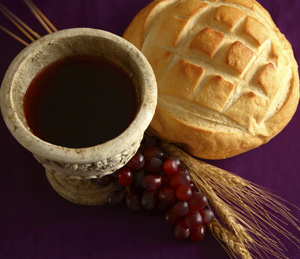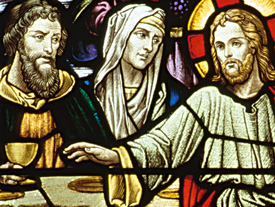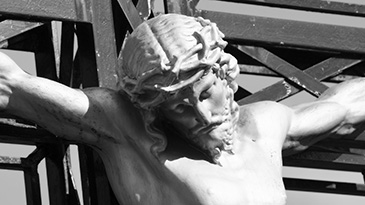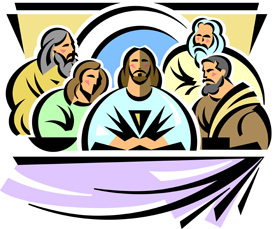By Tom Claibourne
Twenty-six verses. Mark 14:1-26 comprises less than a third of the chapter, but it is filled with a whirlwind of passionate emotions and events.
• We see envy, fear, anger, deception, malice, hatred, and evil plots:
“The chief priests and the teachers of the law were scheming to arrest Jesus secretly and kill Him” (v. 1).
 • We see gratitude, love, a sacrificial offering, some misunderstanding, an explanation, and a gospel message for the ages:
• We see gratitude, love, a sacrificial offering, some misunderstanding, an explanation, and a gospel message for the ages:
A woman touched by the grace of God offered an expensive expression of love and gratitude to Jesus by anointing him amid a confused gathering of people. Jesus honored her (vv. 3-9).
• We see selfish betrayal, sadistic pleasure, and an empty reward:
“Then Judas Iscariot, one of the Twelve, went to the chief priests to betray Jesus to them. They were delighted to hear this and promised to give him money. So he watched for an opportunity to hand him over” (vv. 10, 11).
• We see preparation, a meal of remembrance, uncomfortable words, self-evaluation, warnings, an exciting prophecy, a song, and a departure to fulfill a mission:
Jesus gathered with his disciples to share the Passover meal, where he warned about harsh events ahead, gave new meaning to Passover, and celebrated his coming kingdom. After a song, he led them out to a dark garden where he knew his betrayer and captors would soon arrive. He calmly went forth to carry out his mission (vv. 12-26).
In the Lord’s Supper we encounter many of the same things.
Our sin-cursed world is still filled with envy, fear, anger, deception, malice, hatred, and evil plots. Sometimes these things even find their way into our hearts. In Communion we confront and confess them.
In the Lord’s Supper we celebrate the grace of God and are prompted, like the woman in Mark 14, to gratefully offer ourselves and all we have as a shameless expression of love and gratitude.
Selfish betrayal, sadistic pleasure, and empty rewards still surround us, so the table of remembrance invites us to acknowledge and confess our own betrayal, and our need of a rescuer.
Communion time requires preparation of emblems and hearts. It involves uncomfortable words, self-evaluation, warnings, predictions, songs, and a departure to fulfill our mission. We are prompted to take an honest look at our life and motivated to move forward with the mission Jesus left for us, even if it is uncomfortable.
What will you see and feel today at the Lord’s table, and what will you do in response?
Tom Claibourne celebrates the Lord’s Supper with the Bethlehem Church of Christ in Winchester, Ohio, where he serves as preaching minister.











